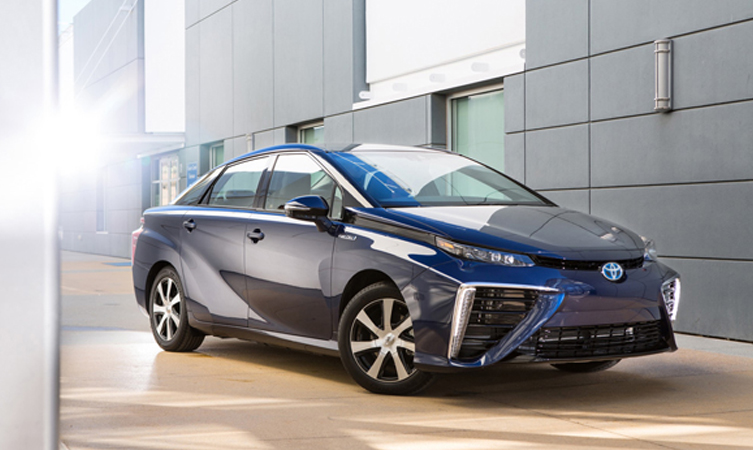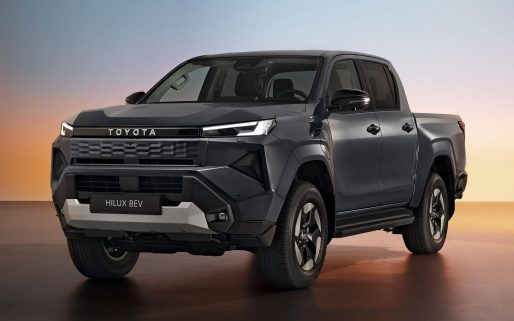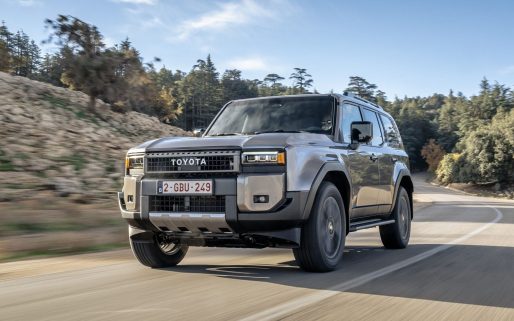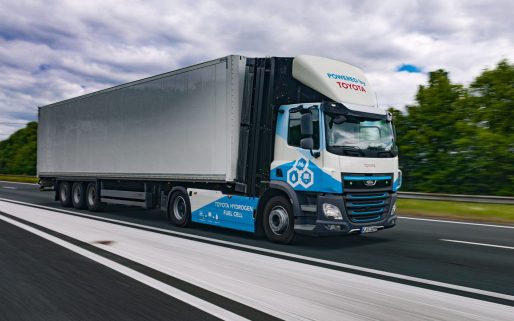The Toyota Mirai features a high-output Toyota FC Stack and optimal battery control drive the electric motor, ensuring powerful responsiveness at all speed. The system provides an immediate increase in torque the moment the accelerator is pressed and smooth powerful acceleration thereafter.
Locating major parts such as the FC stack and high-pressure hydrogen tanks centrally beneath the vehicle floor gives improved handling stability and ride comfort, as well as a low centre of gravity and good front/rear weight distribution. Mirai also benefits from a highly rigid body, with extra rigidity around the rear suspension.
The full underfloor cover and aerodynamically designed clearance lights reduce wind resistance and contribute to the car’s fuel efficiency and handling stability. Aero fins added to the side of the rear combination lights also have a positive impact on straight-line driving stability.
The electric motor drive operates with outstanding quietness at all speeds. Cabin quietness is further supported by the full sealing of all body parts, strategic deployment of sound absorbing and insulating materials around the cabin and use of noise-reducing glass for the windscreen and door windows.
The driver can make us of Bs (brake support) mode for efficient use of the car’s regenerative braking function, increasing braking performance when needed, for example when negotiating a long downhill section of road.
Click the following links to find out more about the Toyota Mirai.
Toyota Mirai fuel cell car: technical specs and release date
Toyota Mirai: Environmental performance and convenience
Toyota Mirai: Designed and equipped for safety
Toyota Mirai: Exterior and interior design
Toyota Mirai technical specifications vs FCHV-adv




